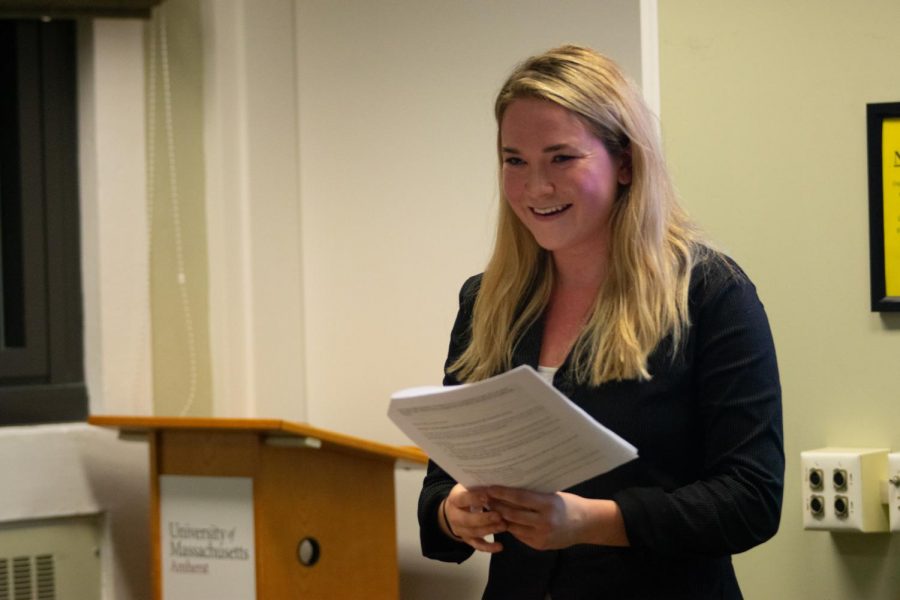The International Programs Office held a panel titled “Contemporary Women Travelers and Safety Abroad,” which discussed the extra precautions and preparation that women should take when studying in other countries.
Along with the panel was a discussion hosted by senior anthropology major Laura Barkowski, who studied abroad in Botswana in southern Africa. The discussion focused on three topics, the first which addressed navigating your destination. Barkowski stated her trip to Botswana made her think of her experience as a woman. This ranged from everything from transportation, to cell phone plans, to traveling in a group at all times.
“Essentially the message here is confidence is key,” Barkowski said. “If you are going to a city, I would highly recommend doing a Google Maps [search] to get a feel for the streets. Also, carry a map with you or download one to your phone so you have access to that when you need it.”
She challenged students to reach out to the county’s natives. “Make friends with the local women in your area and ask them questions like where to go, what to avoid and where to purchase things.”
The second topic included in the presentation focused on gender roles within a culture. Barkowski encouraged students to be respectful of the culture, but to prioritize their own safety and comfort.
“You will learn more about yourself within a new context when exploring the host community and navigating cultural differences,” Barkowski said before explaining that there are also moments where the culture may be difficult to assimilate into.
Barkowski offered an anecdote about her own experience in Botswana where she was asked to prepare dinner for her host family. When making the plates, she gave everyone equal portions and the males in the house got upset. Typically, the males of the household get larger portions, something Barkowski was not aware of. In this scenario, she encouraged students to just return to the kitchen and do what it normal for the family.
“You cannot always inflict values into another culture,” Barkowski said. “Understand that there is either historical or cultural reasons that it is occurring.” She advised students find an outlet for discussing their issues.
Korka Sall, a Ph.D. candidate from Senegal who is studying abroad in the U.S. said, “You should be able to be yourself in that space. Just observing and reflecting instead of reacting sometimes. Safety is the most important thing, but also not getting too much on your guard. It’s good to go in with an open mind and not judge people, because you know, it’s their culture. It’s something that they know about and that they grew up with, and you don’t want to offend them, right? So just take those moments to reflect on your own gender and identity.”
Barkowski said students abroad should research the typical behavior toward women in the places they are traveling to. The third topic, introspection, discussed this further.
“Never sacrifice yourself or your sense of safety for the sake of cultural sensitivity and I want to make it very clear that it is never your fault,” Barkowski said.
Hospitality and tourism management major Linden Pearsall talked about night life while traveling and staying safe. The panel recommended practicing the same tactics as you would in the U.S., like not putting your drink down and staying with friends. But in a different culture, there are certain practices that might take some getting used to.
The IPO encourages students to check out some of their resources, specifically the U.S. State Department Consulate or Embassies and Pathways to Safety.
On Nov. 8, the IPO will be holding a panel called “Race & Ethnicity Abroad,” for students looking to prepare for travel.
Cassie McGrath can be reached at [email protected].




















